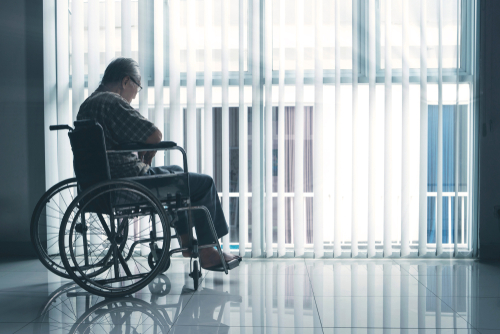Pros and Cons of Putting Elderly Parents in Nursing Homes
Category:

Pros and Cons of Putting Elderly Parents in Nursing Homes
Deciding to put your parents in a home is a big decision, which is why it’s worth carefully weighing circumstantially appropriate nursing home benefits against the kind of disadvantages you might want to avoid. But what are the pros and cons of putting elderly parents in nursing homes? Are nursing homes good for everyone? And how do seniors feel about them?
Advantages of Nursing Homes for the Elderly
As far as advantages are concerned, the pros of nursing homes can be a fairly lengthy list. When you pick the right facility, loved ones gain access to highly trained care providers with a range of specialties, from nutrition to general care. The living environment of a nursing home means being surrounded by peers of the same age, which can make socialization easier.
Loved ones can get assistance with daily tasks, including things like dressing, bathing, eating, housekeeping, meal service, and so forth. Nursing homes can also provide around-the-clock attention for those who need a chronic condition monitored. In short, a high quality facility can provide a safe and pleasant living environment that adults of any age might be envious of.
The Disadvantages of Nursing Homes
While there’s a fairly long list of advantages, the list of cons of nursing homes can be just as lengthy. For starters, it can be prohibitively expensive because nursing homes are usually the most expensive form of long-term care. While rates vary by region, in many states, you can expect to pay in excess of $100,000 annually.
Undergoing a big change can be challenging to anyone. Even simple changes in routine, like meal times, can have a large experiential impact on a person’s life. And frankly, living in a nursing care environment can sometimes be depressing. Seniors may understandably dislike the idea of entering into an environment which feels like their final step before their end of their life.
That may be worsened by the fact nursing homes can offer a lower degree of independence, since even things like the basic scheduling is partially decided for you. Even though you’re in an environment that can promote socialization, moving to a nursing home can also affect one’s ability to visit family or friends. And if you’re budget conscientious, there may be a higher possibility of encountering poor care conditions.
Download Our Guide to Home Care
How do Seniors Feel About Nursing Homes?
When you look at the hard data, research shows that senior opinions about nursing homes can depend on a long list of variables. That includes factors like their living situation before entering a nursing home, their primary disease, duration of residence, age, and so on. In short, some people like it and some don’t.
When you ask them directly, most seniors prefer to live independently as long as possible, or in a place where they can be surrounded by loved ones. But everybody’s different, which means nursing homes will be a good idea for some people, but not others. For instance, while the 24-hour care you can find in a nursing home can be helpful for some people with dementia, so can being in the familiar surroundings of a home care environment.
And remember that any list of nursing home benefits would be inadequate without doing your best to weigh the opinions of those affected by these decisions.
Subscribe
Date: April 29, 2021
Category:


